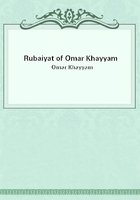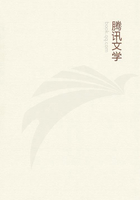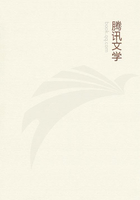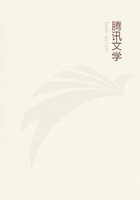We ask, then, whether the understanding principle in the soul has equally the power of turning inwards upon itself or whether it has no more than that of comprehending the impressions, superior and inferior, which it receives.
The first stage is to discover what this comprehension is.
3.Sense sees a man and transmits the impression to the understanding.What does the understanding say? It has nothing to say as yet; it accepts and waits; unless, rather, it questions within itself "Who is this?"- someone it has met before- and then, drawing on memory, says, "Socrates."If it should go on to develop the impression received, it distinguishes various elements in what the representative faculty has set before it; supposing it to say "Socrates, if the man is good,"then, while it has spoken upon information from the senses, its total pronouncement is its own; it contains within itself a standard of good.
But how does it thus contain the good within itself?
It is, itself, of the nature of the good and it has been strengthened still towards the perception of all that is good by the irradiation of the Intellectual-Principle upon it; for this pure phase of the soul welcomes to itself the images implanted from its prior.
But why may we not distinguish this understanding phase as Intellectual-Principle and take soul to consist of the later phases from the sensitive downwards?
Because all the activities mentioned are within the scope of a reasoning faculty, and reasoning is characteristically the function of soul.
Why not, however, absolve the question by assigning self-cognisance to this phase?
Because we have allotted to soul the function of dealing- in thought and in multiform action- with the external, and we hold that observation of self and of the content of self must belong to Intellectual-Principle.
If any one says, "Still; what precludes the reasoning soul from observing its own content by some special faculty?" he is no longer posting a principle of understanding or of reasoning but, simply, bringing in the Intellectual-Principle unalloyed.
But what precludes the Intellectual-Principle from being present, unalloyed, within the soul? Nothing, we admit; but are we entitled therefore to think of it as a phase of soul?
We cannot describe it as belonging to the soul though we do describe it as our Intellectual-Principle, something distinct from the understanding, advanced above it, and yet ours even though we cannot include it among soul-phases: it is ours and not ours; and therefore we use it sometimes and sometimes not, whereas we always have use of the understanding; the Intellectual-Principle is ours when we act by it, not ours when we neglect it.
But what is this acting by it? Does it mean that we become the Intellectual-Principle so that our utterance is the utterance of the Intellectual-Principle, or that we represent it?
We are not the Intellectual-Principle; we represent it in virtue of that highest reasoning faculty which draws upon it.
Still; we perceive by means of the perceptive faculty and are, ourselves, the percipients: may we not say the same of the intellective act?
No: our reasoning is our own; we ourselves think the thoughts that occupy the understanding- for this is actually the We- but the operation of the Intellectual-Principle enters from above us as that of the sensitive faculty from below; the We is the soul at its highest, the mid-point between two powers, between the sensitive principle, inferior to us, and the intellectual principle superior.We think of the perceptive act as integral to ourselves because our sense-perception is uninterrupted; we hesitate as to the Intellectual-Principle both because we are not always occupied with it and because it exists apart, not a principle inclining to us but one to which we incline when we choose to look upwards.
The sensitive principle is our scout; the Intellectual-Principle our King.
4.But we, too, are king when we are moulded to the Intellectual-Principle.
That correspondence may be brought about in two ways: either the radii from that centre are traced upon us to be our law or we are filled full of the Divine Mind, which again may have become to us a thing seen and felt as a presence.
Hence our self-knowing comes to the knowing of all the rest of our being in virtue of this thing patently present; or by that power itself communicating to us its own power of self-knowing; or by our becoming identical with that principle of knowledge.
Thus the self-knower is a double person: there is the one that takes cognisance of the principle in virtue of which understanding occurs in the soul or mind; and there is the higher, knowing himself by the Intellectual-Principle with which he becomes identical: this latter knows the self as no longer man but as a being that has become something other through and through: he has thrown himself as one thing over into the superior order, taking with him only that better part of the soul which alone is winged for the Intellectual Act and gives the man, once established There, the power to appropriate what he has seen.















